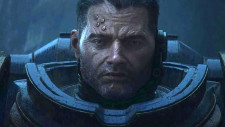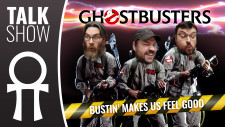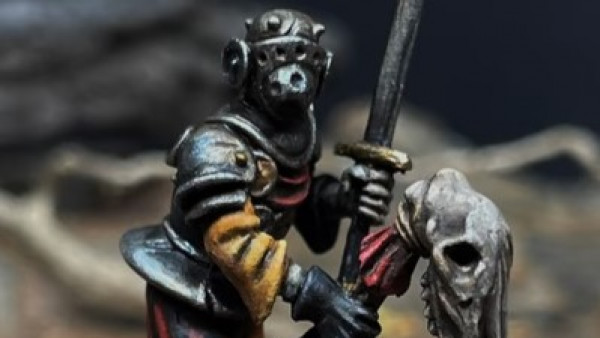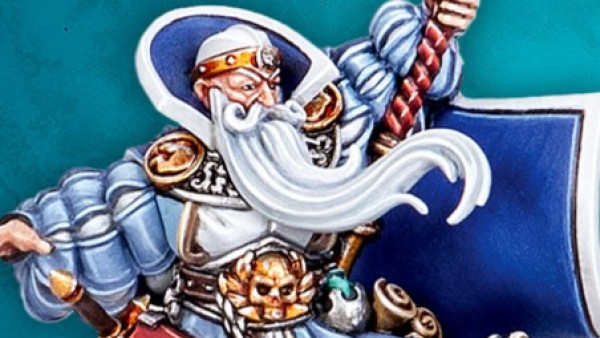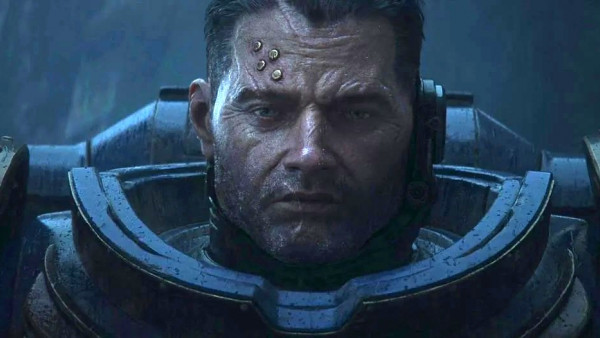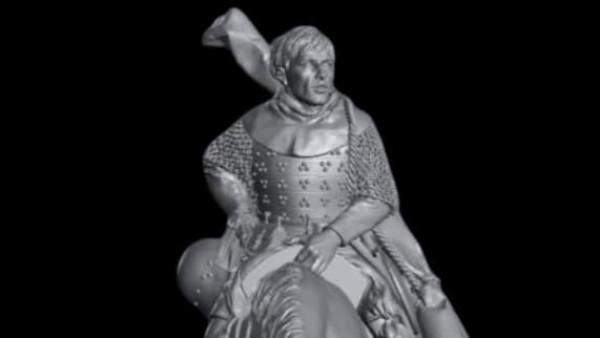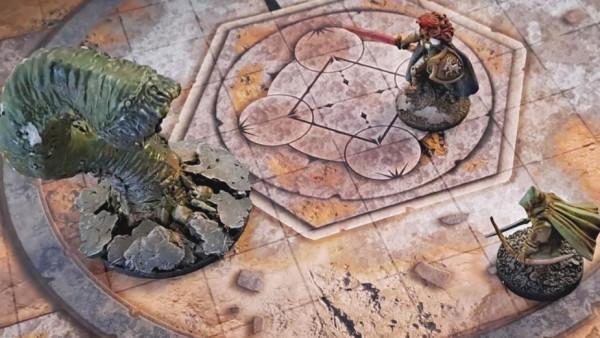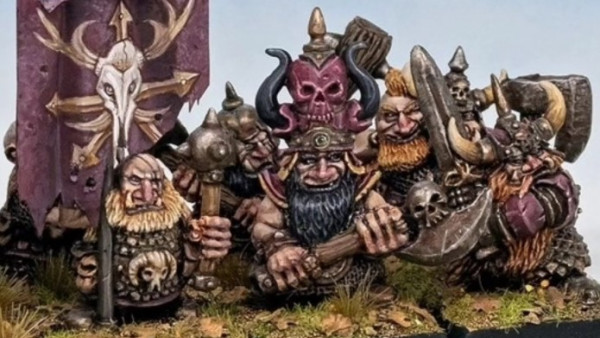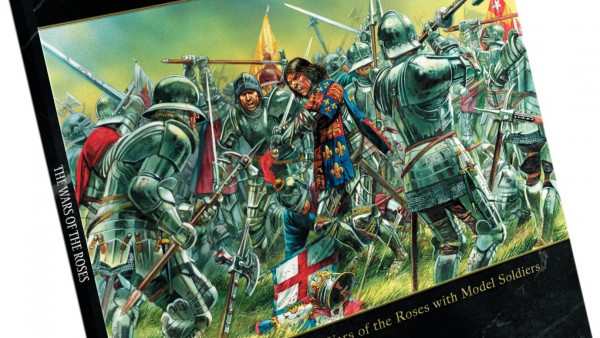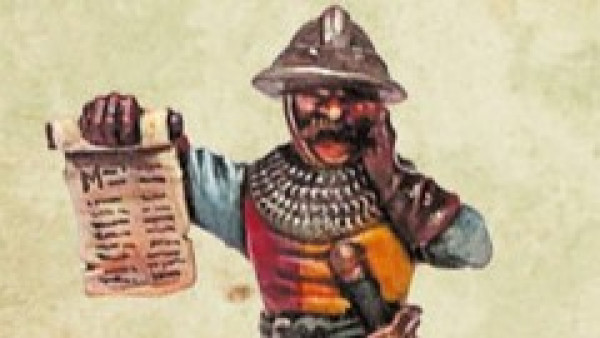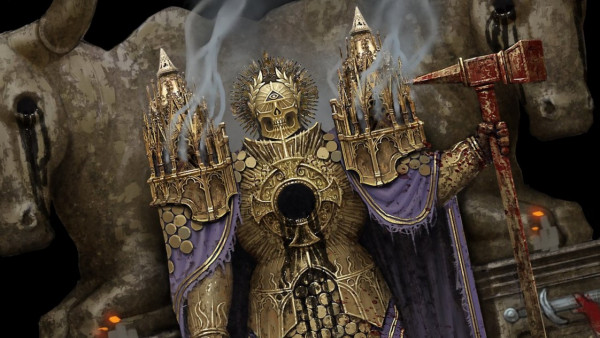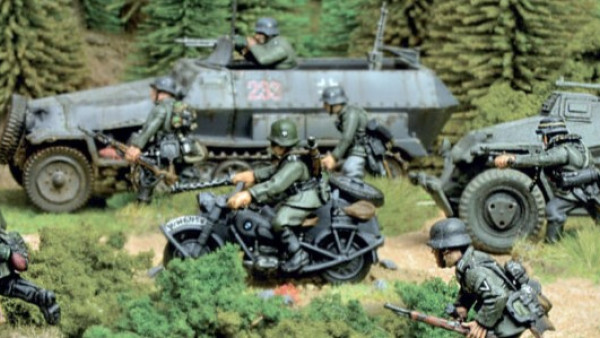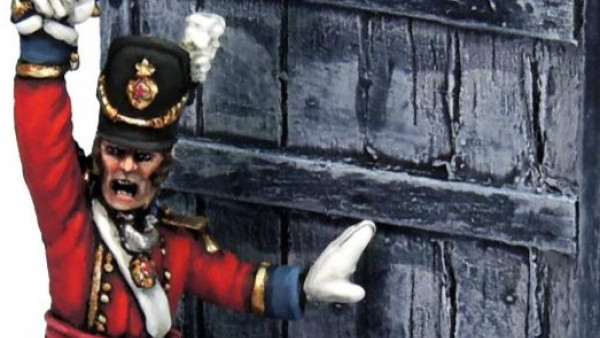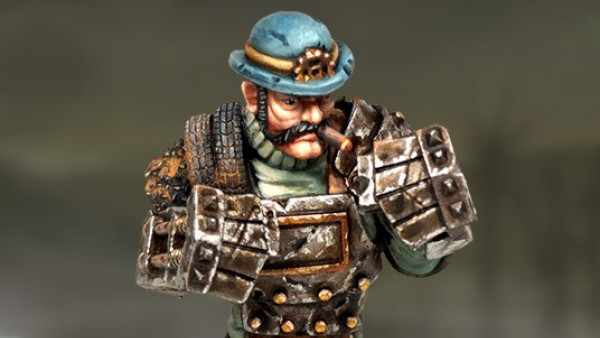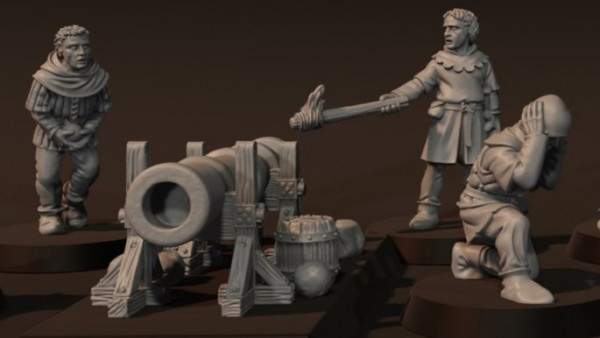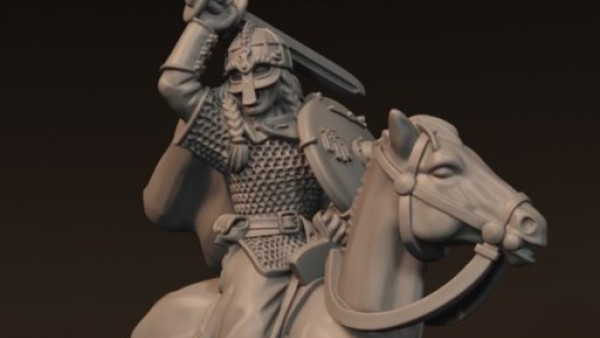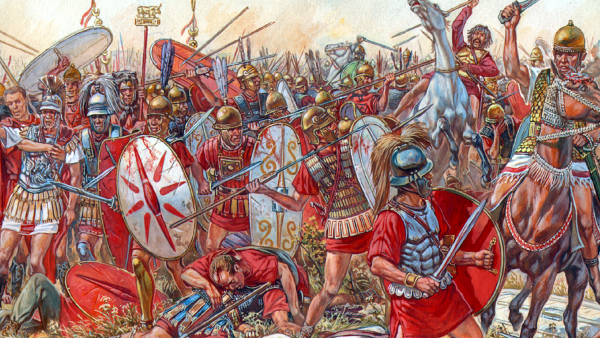Home › Forums › Historical Tabletop Game Discussions › Interesting article about war films
This topic contains 9 replies, has 8 voices, and was last updated by ![]() piers 6 years, 6 months ago.
piers 6 years, 6 months ago.
-
AuthorPosts
-
June 3, 2018 at 6:49 am #1199476
Saw this today by Anthony Beevor in the Guardian
For a long time now, my wife has refused to watch a war movie with me. This is because I cannot stop grinding my teeth with annoyance at major historical mistakes, or harrumphing over errors of period detail. She only made an exception when Valkyrie came out, with Tom Cruise playing Count Claus Schenk von Stauffenberg. Such a folly of miscasting was bound to be a hoot, and we were not disappointed, especially when Cruise saluted in that downward cutaway style as if he were still in Top Gun. But I was soon grinding away again when the director and screenwriter felt compelled to improve on history, by making it look as if the 20 July plot to blow up Hitler had still very nearly succeeded.
I despair at the way American and British movie-makers feel they have every right to play fast and loose with the facts, yet have the arrogance to imply that their version is as good as the truth. Continental film-makers are on the whole far more scrupulous. The German film Downfall, about Hitler’s last days in the bunker, respected historical events and recreated them accurately.
In my view, the greatest war movie ever made is The 317th Platoon, a French film from 1965 set during the country’s first Indochina war. This was the original “platoon movie”, whose format later directors followed but failed to match in its portrayal of characters and their interaction, to say nothing of the moral choices and the corruption of combat. It is followed closely by 1966’s The Battle of Algiers, set during the Algerian war of independence. This was one of the first war films to adopt a quasi-documentary approach, and tackle the moral quagmire of torture justified by the need to save lives.
More recent imitators lack all intellectual honesty. They throw dates and place names on to the screen as if what you are about to see is a faithful reproduction of events, when they are simply trying to pass off their fiction as authentic. This is basically a marketing ploy that has developed over the last 20 years or so. Unfortunately, fake authenticity sells. People are more likely to want to see something they think is very close to the truth, so they can feel they are learning as well as being entertained. In a post-literate society, the moving image is king, and most people’s knowledge of history is regrettably based more on cinematic fiction than archival fact.
There are many examples of shameless deception, such as the notorious U-571, in which a US warship is shown to capture a German submarine and seize its Enigma decoding machine, thus enabling the Allies to win the battle of the Atlantic. Right at the end, in the credits, a brief text admitted that in fact it had been the crew of a Royal Navy destroyer, HMS Bulldog, that performed the feat – seven months before the US entered the war.
When promoting Enemy at the Gates, a fictitious sniper duel set in Stalingrad, Paramount Pictures even had the gall to claim: “One bullet can change the course of history.” I hasten to add that, even though Jean-Jacques Annaud invited me to come out to Germany to watch the filming, the movie had nothing to do with my book Stalingrad and I was not an adviser in any form.
The director was trying to woo me and persuade me not to be too severe on the question of truth, because we had found in the Russian ministry of defence archives that the whole story of the sniper duel – portrayed by Jude Law and Ed Harris – had been a clever figment of Soviet propaganda. I liked Annaud, but in the end I was not popular, of course, because Paramount had bought the movie as “a true story”. His great line was: “But Antony, who can tell where myth begins and truth ends?”
The real problem is that the needs of history and the needs of the movie industry are fundamentally incompatible. Hollywood has to simplify everything according to set formulae. Its films have to have heroes and, of course, baddies – moral equivocation is too complex. Feature films also have to have a whole range of staple ingredients if they are to make it through the financing, production and studio system to the box office. One element is the “arc of character”, in which the leading actors have to go through a form of moral metamorphosis as a result of the experiences they undergo. Endings have to be upbeat, even for the Holocaust. Look at Schindler’s List and the sentimentality of its finale, revealing that in movies only the survivors count.
I was asked by a large-circulation American weekly magazine to review Saving Private Ryan. My piece was spiked since it did not share the widespread adulation, and I still shake my head in disbelief when it is regularly voted the best war movie ever. It is nevertheless a work of intriguing paradoxes – some intended, others not. Steven Spielberg’s storyline rightly dramatises the clash between patriotic and therefore collective loyalty, and the struggle of the individual for survival. Those mutually contradictory values are, in many ways, the essence of war.
Spielberg said at the time that he sees the second world war as the “defining moment” in history. One also suspects that he wanted this film to be seen as the defining movie of the war. If so, it is a uniquely American definition of history, with no reference to the British let alone the Soviet role.
Eight US rangers under the command of a captain, having survived the initial D-day bloodbath, are detailed to seek out and save a single man, Private Ryan. The Hollywood notion of creativity often takes the form of cinematic ancestor worship – but in this case, it is images and effects that are recycled. Spielberg may not even have included them consciously but, during the landing, the blood in the water in the first machine-gunning prompts memories of Jaws, another Spielberg film. And German Tiger tanks can indeed appear like prehistoric monsters, but when the sound effects of their approach later in the film resemble that of the Tyrannosaurus rex in Jurassic Park, it all seems too much.
After a truly extraordinary opening – probably the most realistic battle sequence ever filmed – everything changes and becomes formulaic. The climax combines just about every cliche in the book, with a very mixed handful of men (almost a la Dirty Dozen) improvising weapons to defend a vital bridge against an SS Panzer counterattack. The redeemed coward and the cynic reduced to tears – both ticking the “arc of character” box – are straight out of central screenwriting. The US air force arrives in the nick of time, just like the cavalry in 1950s cowboy films. And to cap it all, the final frames are of Private Ryan, standing in old age amid the rows of white crosses in a military cemetery, saluting his fallen comrades as tears run down his cheeks.
So what, apart from milking our tear ducts with both hands, was Spielberg really trying to do? Was his revolutionary approach to realism – the special effects and stunt teams make up the largest blocks in the credits – simply an attempt to conceal a deeply conservative message, as some commentators claimed?
It was not quite as simple as that. Amid the horror of war, Spielberg seems to be trying to rediscover American innocence, that Holy Grail that existed only in the Rousseau-esque imagination yet was virtually incorporated into the constitution. Spielberg, like other Hollywood directors of the time, came from a generation scarred by the moral quagmire of Vietnam. He understood the national need, in the post-cold war chaos, to reach back to more certain times, seeking reassurance from that moment in history – the second world war – when the fight seemed unequivocally right. “Tell me I’ve led a good life,” says the weeping veteran in the cemetery to his wife. “Tell me I’m a good man.”
“You are,” she replies, and the music begins to swell, with drum beats and trumpets. This representative of American motherhood appears to be reassuring the US as a whole. She seems to be speaking to a nation unable at that time to come to terms with its role in a disordered world, to a nation that, for all its power, can be bewilderingly naive abroad because it so badly needs to feel good about itself at home.
Even movies ostensibly showing corruption and criminality in the heart of the CIA and the Pentagon have to end on a nationalistic note, with a tiny group of clean, upstanding American liberals saving democracy. And it is, of course, hard to forget The Patriot, starring Mel Gibson, that fearless symbol of Brit-bashing films, whether at Gallipoli or all woaded up in the Scottish Highlands as Braveheart.
Andrew Marr rightly called The Patriot, set in the American war of independence, “a stinker”. As he pointed out: “Black Americans, in fact destined to stay slaves thanks to the war, very many of whom enlisted with the British, are shown fighting shoulder to shoulder with their white rebel ‘brothers’. The British are portrayed as effete sadists and serial war criminals, just as in other American films. The huge support of the Bourbon French, who helped win the war, is airbrushed out. And the fact that most colonists actually sided with King George is airily forgotten.”
Patriotism also permeated those British war movies of the 1950s and 60s – The Dam Busters, Reach for the Sky, The Cruel Sea, The Heroes of Telemark, The Battle of the River Plate, Cockleshell Heroes. It camouflaged itself in self-deprecation, but the rousing march music in the finale always braced our belief in the rightness of our cause. We have long made fun of all the period cliches, unable to believe that anyone talked like that. But when researching my new book Arnhem: The Battle for the Bridges, I found that German officers really did say to the British paratroopers taken prisoner: “For you the war is over.”
One of my favourite remarks, recorded at the time by a junior doctor, is the reaction of Colonel Marrable, the head of an improvised hospital in the Netherlands, when Waffen-SS panzergrenadiers seized the building. Still puffing gently on his pipe, he says to his medical staff: “Good show, chaps. Don’t take any notice of the Jerries. Carry on as if nothing has happened.” I have always been doubtful about the notion of “a national character”, but a national self-image certainly existed during the war and for some time afterwards. Perhaps that is partly why I do not react so angrily when watching films of that era. Also, they never used that weasel claim “based on a true story”.
Recent productions are a very different matter. Last year’s Dunkirk and Darkest Hour were strong Oscar contenders. Yet watching Dunkirk, you would have thought that CGI had not been invented. Where were all those 400,000 men and their discarded equipment on all those miles of empty, pristine beaches? The film also gave the impression that the air battles took place at low level over the sea when, in fact, Fighter Command was counterattacking at altitude and well inland. It also implied that “the little ships”, as Churchill called them, rescued more soldiers than the Royal Navy warships. Wrong again.
Darkest Hour had even more historical inaccuracies. Gary Oldman fully deserved the best actor Oscar for his brilliant performance as Churchill, but those responsible for the script get “nul points”. I fear that anyone who agrees to be a historical adviser for a movie is putting their reputation on the line. The ludicrous scene of Churchill in the underground (where he had never set foot in his life) was not the only howler.
On becoming prime minister in 1940, Churchill remained in the Admiralty, but he generously allowed Chamberlain to carry on in Downing Street. His respectful treatment of his former leader is important because – when it came to the crunch with Lord Halifax, over the question of asking the Italians to discover Hitler’s peace terms – Chamberlain supported Churchill and did not plot against him as the film suggests.
Also, why were so many scenes shot in the bunker war rooms when the Luftwaffe had not yet bombed London? I was so irritated, it was a good thing I saw it on my own. Another visit to the dentist, I fear.
June 3, 2018 at 9:00 am #1199667All I can say is that I feel sorry for this guy and hope he one day ends up in a war zone and makes his own film about it so he can say it was historically correct.
June 3, 2018 at 12:33 pm #1199928Well said..
June 3, 2018 at 6:29 pm #1200448I actually agree with most of what this writer says.
I wrote the rest of this post several times, but it kept turning into a rant.
This is actually a very sore point of contention with me, but in the interest of staying positive I’ll leave the soap box in the closet. Kudos to @torros, though, for posting the article.
June 3, 2018 at 6:38 pm #1200465Yup Just put it up for discussion. The writer studied under John Keegan at Sandhurst so I presume he knows his military history. Of course it’s all open to opinion as well and I can see where he is coming from in regards to not needing to change history for the sake of a the film as the history is usually more than interesting enough.
June 4, 2018 at 10:29 am #1201064Couldnt agree more with Beevor.
As Oriskany states, probably best left there.
I may not agree with Beevor on all his historical writing, but you cant argue that he has written some of the outstanding historical books of the last 40 years and remains one of the most, if not the most, popular contemporary historians writing on WWII and one able to bridge the gap between dry historical academic research and popular writing. He and Martin Middlebrook for me arentwo of the few who can write history in an accesible way to the mass market and still retain a readership. Thus his comments hold some water.
As an author his books are always ones that I recommend to someone new to a period or genre.
Its a shame movies dont stay true to history. Truth is often stranger than fiction.
June 4, 2018 at 11:21 am #1201159Mr. Antony Beevor is a professional historian with many appearances in documentaries, not only on the second world war, and quite a few publications. It doesn´t come as a surprise to me that he dislikes the so-called “war movies based on true events”.
He´s the author of on epic and concise book on WW II, “The Second World War”, packed to the brim with both individual stories about single persons and comtemplations of the events from a wide perspective. It was very interesting to read. His attempt to give an unbiased account and to show different viewpoints is a complete success.
Considering Mr. Beevor´s Age, he may well have met People who actually fought in the war, so some of his stuff is probably first hand. So, having to watch historical inaccuracies may quite well and even more lead to dental problems.
The other book of his I own is on the Spanish Civil War. Unfortunately I can´t remember the title. Anyway, I had read Orwell´s “Hommage to Catalonia” and as this is from a very left-wing angle (although Orwell is always keen on unbiased historical accuracy) I wanted to complete my knowledge with an opus from a historian. It was good. I wonder what Mr. Beevor thinks of movies and books from that era, for instance “For Whom the Bell Tolls”.
Both books I can recommend as being highly informative and greatly enjoyable.
I fully agree with @torros in his second post: History is so interesting in itself, one doesn´t have to make up stories and just base the plot on the great events. On the other hand a war movie is not a documentary, so we can take such movies as what they are, entertainment and not history lessons.
I for one like both.
Btw, thank you very much for posting this, @torros . Where I live it is hard to get British newspapers at all, and I do not like to read newspapers online. In the case of newspapers I like the smell and feel of paper.
June 4, 2018 at 1:42 pm #1201258I think that the closer you are to a specific subject the more annoying any mistakes and ignorance of source material is going to be (to say nothing of the blatant twisting of facts).
Dunkirk definitely was weird, because despite the fact that I know nothing of the actual events the beaches felt empty.
It also didn’t help that the movie itself showed the events from several different points of view out of order. Such things can add to the drama, but (IMHO) in this movie they made it needlessly complicated.I think another part of the problem for war movies is that they’re also used as propaganda material.
There’s nothing better than seeing ‘our side’ beat the designated bad guys, especially if you casually ignore the few good things the ‘bad’ guys did. How else are you going to get the army to cooperate ?OTOH … these things are movies and not documentaries. Given how ‘documentaries’ on History Channel and National Geographic try to play with tension and overly dramatic cliff hangers before commercial breaks it is more annoying than when movies do it.
June 5, 2018 at 5:50 pm #1202113I think there is a big thing missing in the thoughts on mass media and history, it is not mass medias job to be historically accurate, also it is not history’s job to be good at mass media. Think about that for a second I will wait 😉 …
OK one of the complaints by the author above is that if a Historian (capitalized to show someone who is trained in the Arts and Letters form) is part of the mass media then they have sold their soul and will ruin their reputation. Here is how that is very incorrect, if you promote and help with a mass media project you are bringing history to the general public, read as those that are not trained in history, in an exciting and easily digested way. This excitement brings about a revolution about the topic, Historians can right of The Siege of Stalingrad and get every button and stitch correct while selling a few thousand copies to those that are already in the know on the topic. The mass media can bring a fantastical telling of the story and reach millions, yes many will just stop there and say they learned something, many will only learn that the Soviet Union fought the Nazi regimes during WWII and that the fighting was terrifying. Some, and here is were we as a whole get the opportunity brought to us, will take another step farther and begin to look at other media options on the topic and this will lead to a harvesting of ideas and thought that will go well beyond the original mass media product they consumed.
This is the importance of mass media in education, many will never cultivate the information beyond what is presented but there are some that will go beyond and find a passion in a new avocation. Don’t discount the beginnings of the process, many people don’t find the excitement of history until they find they have some of their own.
If “bad” mass media is the gateway to better education then maybe there should be more “bad” and allow the market for education to grow. If the product has no appeal to the masses then it will not be profitable and there will be no room for any projects to go forward. “Art for Arts sake” is a term that is thrown around but there is always somewhere the counterbalance that allows for the free lunch.
As a post script: I have had this discussion as part of my education many times, as we see in the gaming community there are good gate keepers and bad, his article is one that I understand but the argument is meant for higher level classroom discussion and not the general public. Or here as we can have a discussion in a mostly closeted setting. If the point of his writing an article in the Guardian, another mass media out btw, was to get people to look at historical media and then move onto actual history there may be some validity. Though it reads as someone who is bitter about mass culture and is frustrated that others don’t do history the “right” way and many academics feel this as they are not part of mass culture when it comes to their topic of study.
OK rant over 🙂
June 5, 2018 at 6:07 pm #1202126 -
AuthorPosts
You must be logged in to reply to this topic.
































